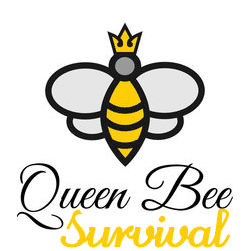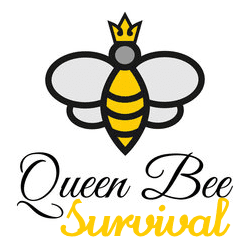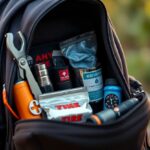Emergencies can strike at any time, making it crucial for you to have a well-thought-out plan to protect yourself and your loved ones. Being prepared for unexpected events can significantly improve your chances of staying safe and managing difficult circumstances effectively.
Your emergency preparedness plan should start with creating a basic survival kit. This kit needs to include enough supplies to sustain your household for at least 72 hours. Stock it with non-perishable food, water (one gallon per person per day), medications, first-aid supplies, flashlights, batteries, and a battery-powered radio.
To enhance your readiness, you should establish clear communication protocols with family members. Designate an out-of-state contact as your family's point person during emergencies. Make sure everyone in your household knows this person's contact information and how to reach them if local communications are disrupted.
Your home needs multiple evacuation routes and a predetermined meeting point where your family can reunite if separated. Practice these evacuation procedures regularly with your family members to ensure everyone knows exactly what to do when an emergency occurs.
Keep important documents in a waterproof, portable container. These should include copies of:
- Insurance policies
- Identification papers
- Bank account records
- Emergency contact numbers
- Medical information
You can improve your preparedness by staying informed about potential emergencies in your area. Sign up for your community's warning system and learn about your area's emergency response plan. Understanding the specific risks in your region will help you tailor your preparation efforts effectively.
Maintaining your emergency supplies is an ongoing process. Check your kit every six months to replace expired items and update your plan based on any changes in your family's needs. Your preparation efforts today can make a significant difference in how well you handle future emergencies.
By taking these steps to prepare for emergencies, you're not just protecting yourself and your family - you're also becoming a more resilient member of your community. When more people are prepared, emergency responders can focus their efforts on those most in need during critical situations.
by Claire Reed / 12.05.2025
Are You An Outdoor Enthusiast Or An Adventurous Soul Looking To Explore
by Claire Reed / 10.05.2025
Are You Prepared For A Doomsday Scenario? Having a comprehensive Doomsday Preppers
by Claire Reed / 07.05.2025
Survival Bracelet with Knife for Survival and Self Defense Survival bracelets with
by Claire Reed / 17.01.2025
Types of Survival KitsWhile there are various types of survival kits, you





